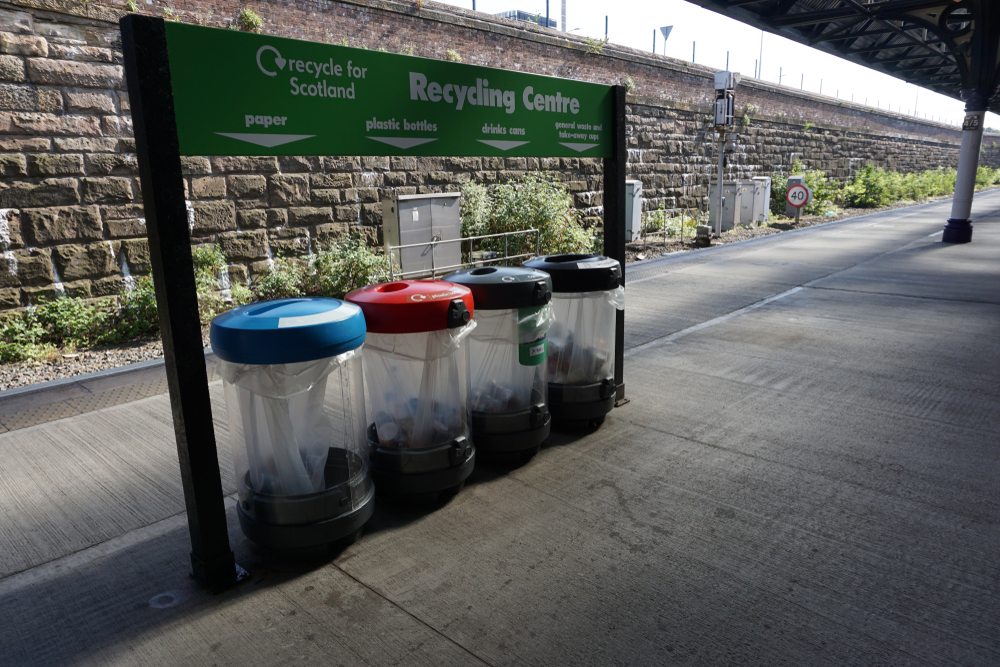Ricardo was commissioned to quantify Scotland’s sectoral greenhouse gas emissions by the Scottish Environmental Services Association (SESA), the trade association for private waste companies.
The research found the waste sector in Scotland was responsible for generating 4.5 million tonnes of carbon dioxide equivalent (tCO2e) in 2018, which was chosen as the study’s baseline year. This was equivalent to 13% of the UK waste sector’s total emissions.
The sector was also responsible for avoiding 3 million tCO2e through “recycling and recovery activities”, Ricardo says, equivalent to around 6% of the UK sector’s total avoided emissions.
Ricardo conducted a UK-wide assessment of greenhouse gas emissions for the ESA which was published in 2021 and suggested the sector was responsible for generating 35.7 million and avoiding 49.9 million tCO2e. SESA then commissioned Ricardo to conduct further research for Scotland alone because recycling and waste management is a devolved matter.
Unlike in the UK as a whole, the Scottish sector was responsible for generating more emissions than it avoided, which Ricardo attributes to factors such as the format for waste tonnage reporting differing between nations and Scotland sending less waste to energy recovery than the other home nations, among other things.
‘Positive engagement’
The ESA used the research from Ricardo’s UK-wide study to support the development of its net zero strategy and its objective to decarbonise the sector by 2040 (see letsrecycle.com story).

Stephen Freeland, SESA coordinator and policy adviser, said “constructive partnership and positive engagement” with the Scottish Government and partners was essential to establishing the framework needed to realise net zero objectives.
He added: “Regardless of any variation in the findings between the modelling, there is no getting away from the fact that the waste sector in Scotland, and across the UK, is a major direct contributor of emissions.
“Our sector is therefore determined to embrace the challenge and play its part in ensuring Scotland hits net zero and, through the ESA net zero strategy, we have a plan in place to decarbonise our sector.”
Emissions
The activities covered by Ricardo’s Scottish study include: collection and transportation; waste transfers; mechanical pre-treatment; sorting, recycling, and material recovery; biological treatment such as composting or anaerobic digestion; landfilling; and thermal treatment.
The assessment considered municipal, commercial, hazardous and clinical waste arisings but excluded industrial or agricultural wastes.

Ricardo says it calculated direct, indirect and avoided emissions using benchmarks obtained from sources such as the Waste and Resources Assessment Tool for the Environment (WRATE) and lifecycle inventory database Ecoinvent. Direct emissions are also known as Scope 1 emissions, while imports of electricity, heat or steam are Scope 2 and all other indirect emissions Scope 3.
Sorting, transfers and recycling contributed the largest proportion of Scotland’s carbon emissions, Ricardo says, “due to the high energy requirement and tonnage passing through these facilities.” Of these emissions, 2.2 million tCO2e were generated in recycling facilities, while 770,000 tCO2e arose from landfills.
Scope 1 emissions were more than three times higher than Scope 2 emissions, Ricardo says, amounting to 3.4 million tCO2e.

Scotland achieved most (91%) of its avoided emissions through recycling, Ricardo says, followed by electricity generation from biogas in landfills.
Residual waste
Last week (3 February), the Scottish Government published a report it commissioned Dr Colin Church to compile on the decarbonisation of residual waste infrastructure (see letsrecycle.com story).

Scotland produced around 11.5 million tonnes of waste in 2018, the report says. Of this, 2.4 million tonnes came from households, 3.2 million tonnes from commercial and industrial sources and 5.8 million tonnes from construction and demolition activities.

Scotland recycled 60.7% of waste from all sources in 2018, the report shows. In 2021, the total quantity of waste processed at Scotland’s six operational municipal incinerators was 1.35 million tonnes, while the nation sent 2.6 million tonnes to landfill in 2020.
Dr Colin Church, independent chair of the review which informed the report, said at its publication: “Incineration remains a more climate-friendly method of managing residual waste than landfill, and more practical than any other currently available approach.
“However, without further action, this advantage will erode over a relatively short time.
“And even if those changes are made, eventually incineration should cease to be a significant management option for residual waste as Scotland makes its economy more circular.”
Related links
Quantification of greenhouse gas emissions from recycling and waste management in Scotland
Decarbonisation of residual waste infrastructure: report











Subscribe for free